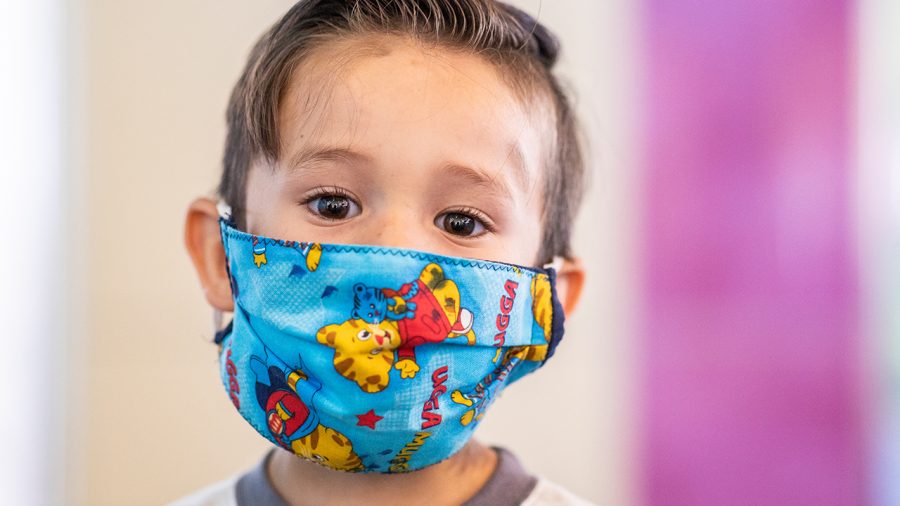The Impact of the Pandemic On Children
January 16, 2022
March 13th, 2020, will go down in the present youth’s lives as an infamous day. The aura seemed slowed, jagged, almost, as kids walked down the hallway for the last time, unknowing of the last normal school day of their lives. But what is the definition of normal, anymore? Has the normal changed into something unrecognizable, void of the simple pleasures gone unnoticed in the previous naivety and simplicity of pre-covid life? Is normal the new stress, the new anxiety clouding the judgment of our masked lives? Societies worldwide were hit hard with the sudden booming of the Covid-19 pandemic. Most of all, though, it seems children have been hit the hardest with our new reality.
Children are the foundation of our society, seedlings that nurture our future. However, seedlings need water, sunlight, etc. necessary for their growth- components to spur development. Their development, however, was stunted through the pandemic. First, when kids were thrown into isolation, their friends were ripped away. My parents decided to send me to live with my grandfather, gripped in the clutches of the paranoia sweeping the medical field at the time. Isolation is never good for humans, as there are studies that have proven it has the power to, in fact, make a person go mad. When one is isolated, a human is faced with their deepest, darkest parts, forced in front of the mirror of their soul to reach within and face the horrors inside. Children were faced with the maddening search of their soul in the pool of isolation, amplifying previous insecurities such as self-doubt and body-image. Suicide rates were at an all-time high, along with anxiety and depression, among worsening of other mental illnesses.
The impact of the pandemic on mental health was not the only retribution children faced. Academically, children suffered a blow. No matter the benefits of online learning, kids around the globe were faced with this jarring new method, peculiar and unique in the sense that neither teachers nor students could quite figure out how to normalize it. Not to mention the complete lack of motivation from the children’s sides, online learning was incredibly nonoptimal. Considering that the entire internet, an encyclopedia of the very facts being learnt in school, was at the fingertips of unmotivated students in possession of several devices, “learning” was a word that could only be loosely used to define the events that procured during the pandemic. Because of this, in fact, when schools reopened for a new school year in-person, students had essentially lost out on half a year of traditional learning, leaving gaps in information necessary to continue education. On top of the paranoia of in-school learning, children are now struggling to keep up with unrealistic expectations to keep learning as if the pandemic had never happened- an extremely illogical state of thinking.
It is simply foolish, when it comes down to the truth, to pretend as if things within the school environment have not changed. It is idiotic for adults to compare their education to the children of today’s, as we are growing up learning in a world hit hard by, arguably, the most unprecedented event of the twenty-first century. It makes no sense whatsoever to ignore the pandemic in hopes it will go away, as if an annoying child a mother gives the silent treatment to until their problem is resolved. This pandemic harmed society to the point of no return, reforming not only our lifestyles, but our mindsets, our priorities, our senses of self. It should make sense, then, that children were equally, if not more-so, harmed by this rapid change of pace.
Childhood is the most important time of a person’s life, as it is the time period where the growing and sense of self of one is fulfilled and discovered. When children get this disrupted, their growth stunts and creates irreversible damage, impossible to resolve in the way our world is accustomed to doing. Therefore, I implore society to deeply consider the impact of the pandemic on children struggling to adapt in ways even adults are not able to in the most important time of their lives. Whereas you got some of the “normal,” children of today are forced to grow up in a sci-fi novel- what will you do to help them?

